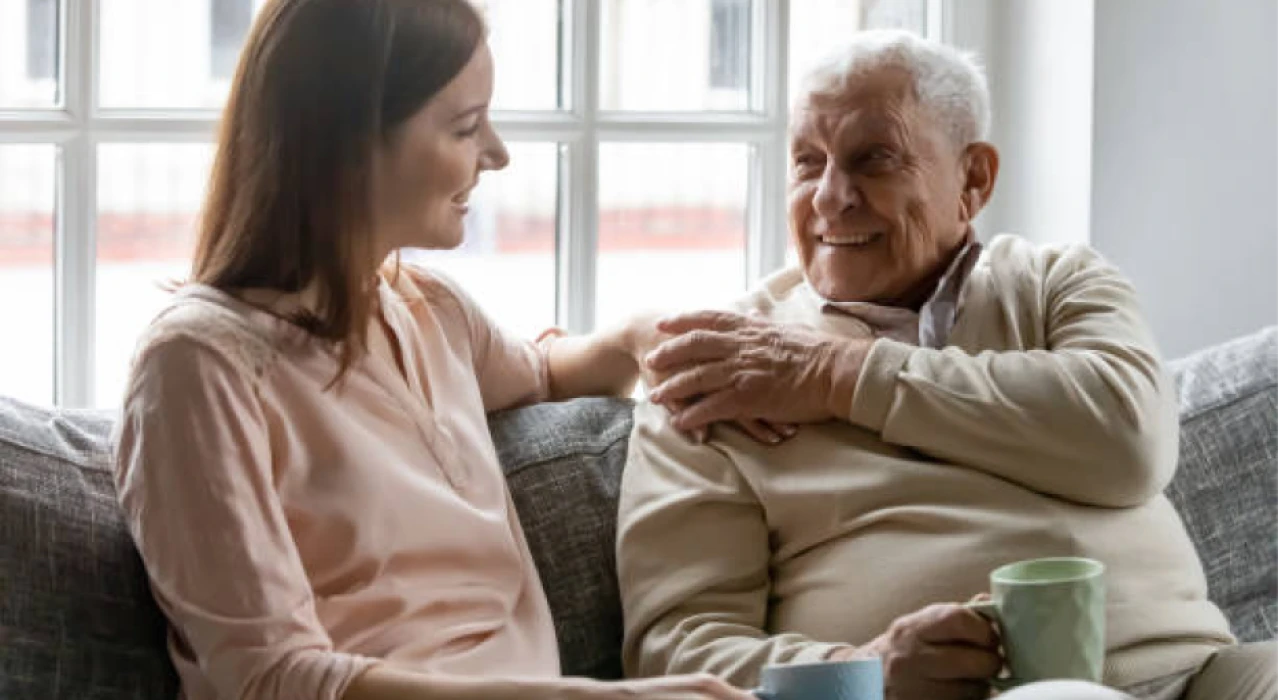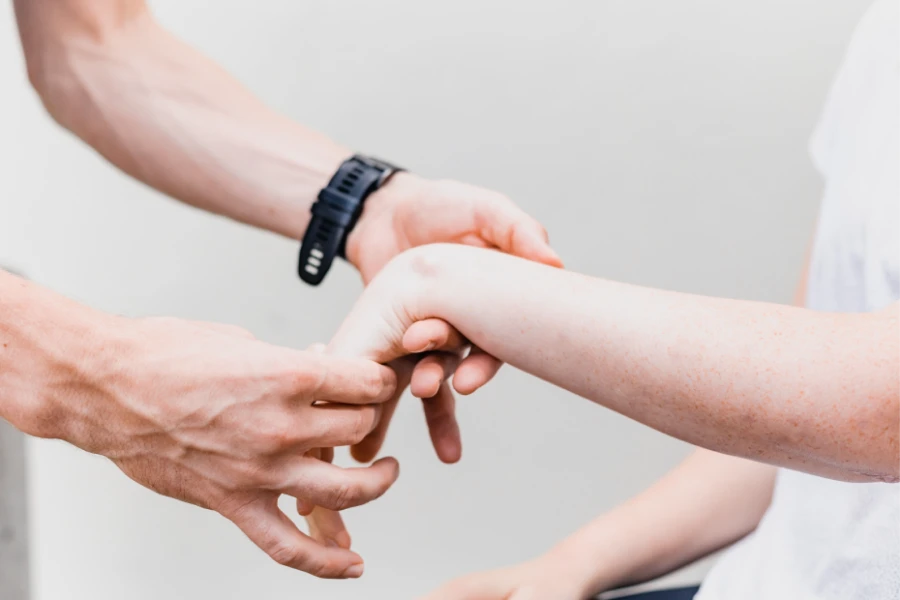Emotional impact
- Aoife Hickey, Senior Clinical Psychologist
- 7 minute read
- Last updated: September 2023
Families go through many different emotions when someone close has a stroke. Some families adjust naturally, while others struggle and may need more support.

Family emotions after stroke

Family emotions after stroke
When someone in the family has a stroke, there can be times when the journey feels bumpy or overwhelming and times when things feel calmer and manageable. In the early stages, it is common to feel upset and frightened. Feelings of sadness and grief may be around. There is no right or wrong way to feel. Your feelings may change over time as the effects of the stroke become clearer.
Emotions can vary depending on:
- the stage in the stroke journey
- recovery and rehab
- the amount of care needed
- support from family, friends and services
- the quality of your relationship before the stroke
The process of adapting to stroke is often complex and it can change over time. The early stage can involve feelings of uncertainty, the focus is often on trying to understand what's happened and the effects of the stroke. Over the first weeks and months, the focus might be on helping the stroke survivor to gain as much independence as possible and making practical arrangements for discharge from hospital. Later on, this might change to regaining a sense of control over and enjoyment of life. A supportive relationship between the stroke survivor and family is helpful, as is access to wider support.
Different family members can experience different emotional reactions for different reasons. Partners may experience a loss of intimacy, moving from an equal, supportive relationship to one in which one person requires care.
Child relatives are affected emotionally when someone close to them has a stroke. Children’s emotional responses will vary according to their age, level of understanding and relationship with the stroke survivor.
Adult children of stroke survivors also face challenges. They are often at a stage in life where they have lots of roles and responsibilities, such as being a parent, spouse or employee. It can be difficult to balance these roles and responsibilities with caring for the stroke survivor.
While life after stroke can be challenging, this is not everyone’s experience. Some people report feeling closer to their loved one and that their relationship feels stronger.
The stroke journey
1. Acute phase
In the early stages, information is key. Talk with doctors, nurses and the rehabilitation team to better understand the stroke and its effects. It's often useful to come to rehab sessions to see what your loved one is able to do independently and what they need help with.
Your focus may be on the survival of your loved one, their prognosis and planning for the short term. For example, you may have to make decisions around visiting, rehabilitation and leaving hospital. Feedback from the hospital team and support from your wider family is important at this point.
2. Rehabilitation phase

Your loved one may have rehabilitation during their hospital stay, and this might continue in the acute hospital, an inpatient rehabilitation hospital or at home. Initially, the focus may be on recovery. While this stage is often hopeful, as you see your loved one progress, it can also be painful if their recovery is not as good as you expected or hoped for.
3. Leaving hospital after stroke
If your loved one’s care needs have changed since stroke, it can be helpful to get involved in caregiving tasks on the ward as discharge approaches, so that you have time to get used to what's involved.
Sometimes, a meeting is organised before discharge home. This is a chance for the stroke survivor, family, medical, nursing and rehab teams to come together and plan the next steps. You should ask questions about things you might be concerned about. If there are decisions to be made about returning home, your input will be very important. It is not unusual to feel overwhelmed and isolated when your loved one is at the point of returning home from hospital.
Once home, there may be an initial increase in stress. Difficulties can include caregiving tasks, changes in the relationship between the stroke survivor and family, financial issues, making lifestyle changes, and difficulty accessing services. Support from others, including family, friends and neighbours, is important.
Care partner
Carer wellbeing
Your emotional wellbeing may improve, get worse or stay fairly steady over the long term. Most research has focused on the negative aspects of caregiving, but some carers experience positive outcomes. This includes feeling closer to the stroke survivor, feeling stronger, focusing on what's important in life or learning new skills.
Carer strain
Carer strain is the emotional and physical burden felt by carers because of their caregiving role. Around a quarter to a half of carers experience it.
This might be because of:
- physical strain
- financial strain
- finding things upsetting or overwhelming
- restrictions on what you can do, where you can go or on your general freedom
- practical adjustments, such as changes to work, family routine or privacy.
- emotional adjustment
Some factors make strain more likely. These include the stroke survivor experiencing emotional, cognitive (thinking skills) or behavioural changes, the amount of time spent caregiving and the number of caregiving tasks.
Distress
Symptoms of anxiety and depression are common in caregivers. Around 40% experience depression symptoms and 21% experience anxiety symptoms. Carer depression is more likely if the stroke survivor is distressed or depressed.
Feelings of loss and sadness can happen from time to time. This is normal and to be expected. However, if you feel constantly sad or low in mood, and you have less interest in your usual activities and interests, it is important to take steps to address this.
Other information
Getting help
What to do if you are struggling
If you are struggling with low mood for longer than a couple of weeks and find that it's getting in the way of your day-to-day life, you should contact your GP (family doctor) who will be able to advise you further.
The organisations below can also help you to access more supports.
Website: https://irishheart.ie/news/free-supports-available-to-carers-of-stroke-survivors/
Email: info@irishheart.ie
Phone: 01 668 5001
Website: www.abiireland.ie/our-services/what-we-do/on-with-life/for-adults/
Email: hello@abiireland.ie
Phone: 01 280 4164
Website: headway.ie/i-am-a-family-member/services-for-families/
Email: helpline@headway.ie
Phone: 1800 400 478
Top tips
Look after yourself
Eat a healthy diet, get a good night’s sleep and try to get some physical exercise every day.
Aoife Hickey | Senior clinical psychologist |
Don’t do it on your own
Social support is important for the stroke survivor and the family. If you can, keep up regular contact with extended family, friends and neighbours. Make time for social and leisure activities. Family and friends may want to help but might now know how. Tell them what they can do to help.
Aoife Hickey | Senior clinical psychologist |
Frequently asked questions
For financial matters, including entitlements and applying for carer’s allowance, see the link below.
If you need help with caregiving tasks or want to plan respite, speak to your public health nurse at your local health centre.